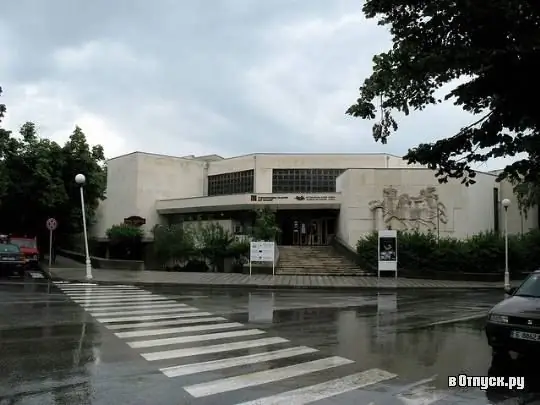
Description of the attraction
The Iskra Historical Museum was founded in 1901 and is one of the oldest museums in the country among local history museums. More than 50 thousand unique exhibits are kept in the funds of the museum, each of the exhibits testifies to the rich spiritual and material culture of the Kazanlak region. The museum contains, researches and promotes the historical heritage of the area in Thrace. The exposition of the museum is divided into several sections: archeology, modern and recent history, revival and ethnography.
The archaeological section contains a collection of tools made of bones and stones, handmade ceramics and all kinds of jewelry from the Neolithic, Eneolithic, and early Bronze eras. In addition, objects from the Kazanlak Thracian tomb discovered in 1944 and the city of Sevtopolis, which were discovered during the construction of the Koprin reservoir in the 50s, are also displayed here. Rare finds also include items found in mounds near Kazanlak.
The exposition, representing the Bulgarian Renaissance, shows the activities and life of the local population from the 18th to the 19th century. The ethnographic collection consists of jewelry and home clothes of the former inhabitants of the area.
The section of modern history is of particular interest thanks to photographs, documents, medals and orders - everything related to the world wars of the 20th century. Unique cultural monuments are also kept here: the score of the opera "Orphan" by Manolov, this work was the first opera in Bulgaria. In addition, the section on new history presents the history of Kazanlak and the entire region from 1889 to 1944.
The exhibition entitled "Recent History" tells the story of the 23rd Shipka Infantry Regiment, which fought against Germany as part of the Red Army division. The exposition contains documentary materials collected during construction 7 km from the city of the Koprinka reservoir.
The museum's Lapidarium presents visitors to view a collection of primitive bone sickles typical of South-Eastern Europe.
In addition to the exhibition halls, the Iskra Museum has a multimedia hall where documentaries about the excavations and archaeological discoveries of the region are shown.






